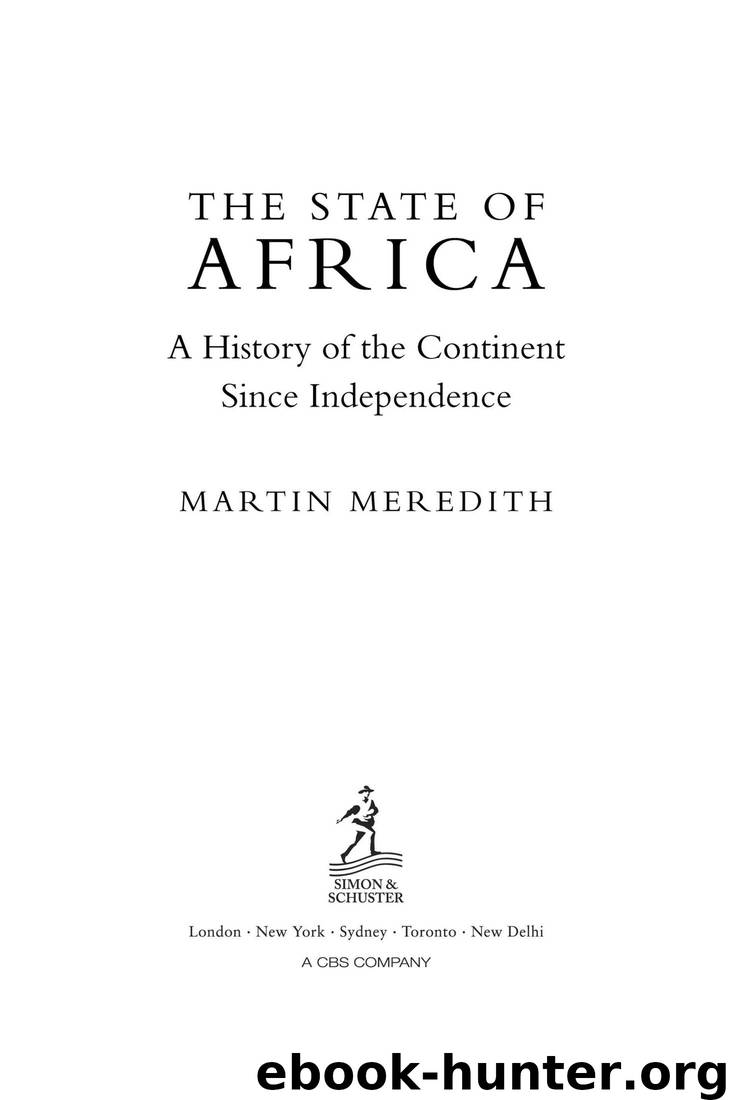The State of Africa: A History of the Continent Since Independence by Martin Meredith

Author:Martin Meredith
Language: eng
Format: mobi
ISBN: 9780857203892
Publisher: Simon & Schuster UK
Published: 2011-08-31T23:00:00+00:00
24
A TIME OF TRIUMPH
In the years that Nelson Mandela spent in prison on Robben Island, South Africa became a fortress of white power and prosperity. Throughout the 1960s it experienced one of the highest rates of economic growth in the world, second only to Japan. Its mines produced record amounts of gold and other minerals; factories proliferated as never before. Foreign trade with Western countries rose in leaps and bounds. Foreign investors from the United States, Britain, France and Germany competed vigorously for positions in new industries. The annual net flow of foreign capital into the country in 1970 rose to a level six times above the pre-Sharpeville era. The economic boom also brought to South Africa a flood of white immigrants, mainly from Europe; between 1960 and 1970 there was a net gain of some 250,000. All this gave white South Africans a growing sense of confidence about the future. Black resistance had been crushed; the security apparatus seemed capable of meeting any contingency. A vast bureaucracy existed to ensure government control. Above all, the government had the resources to make white supremacy a success.
The benefits of National Party rule were noticeable particularly among the Afrikaner community. With government assistance, a new class of Afrikaner financiers, businessmen and managers moved into commanding positions in industry, commerce and banking. State enterprises like railways, harbours, steel production, electric power generation and heavy engineering were manned at a senior level almost exclusively by Afrikaners and used as training fields for Afrikaner scientists and business leaders. Government contracts and concessions were frequently steered towards Afrikaner companies. The civil service was virtually an Afrikaner preserve. Afrikaner farmers, consisting of three-quarters of the total number, also fared well under National Party rule, assisted by subsidies, research funds, modernisation programmes and favourable prices fixed by state marketing boards. The Afrikaner working class benefited in particular from the government’s policy of white job protection. Almost every skilled trade and craft was reserved for white workers. The English-speaking community, of course, shared in the prosperity; few other communities in the world possessed such a high standard of living. The northern suburbs of Johannesburg, where many English-speakers congregated, were said to have the greatest concentration of swimming pools outside Beverly Hills. But the main beneficiaries were Afrikaners. In 1946 Afrikaner incomes on a per capita basis were just under half that of English-speaker incomes. By 1970, they had passed the two-thirds mark.
Though prosperous, white society under National Party rule became increasingly insular and inbred, isolated from the views and lifestyle of the modern world as well as from the majority of the population. The national radio network served as a propaganda machine; each commentary, each news bulletin conveyed the government’s view of the world. All attempts to introduce television were blocked until the government was convinced it could control it. A tight grip was kept on literature and entertainment through censorship laws. The independent press was forced to steer its way through a minefield of legislation, resorting increasingly to self-censorship.
Download
This site does not store any files on its server. We only index and link to content provided by other sites. Please contact the content providers to delete copyright contents if any and email us, we'll remove relevant links or contents immediately.
| Africa | Americas |
| Arctic & Antarctica | Asia |
| Australia & Oceania | Europe |
| Middle East | Russia |
| United States | World |
| Ancient Civilizations | Military |
| Historical Study & Educational Resources |
Goodbye Paradise(3810)
Men at Arms by Terry Pratchett(2836)
Tobruk by Peter Fitzsimons(2516)
Borders by unknow(2313)
Arabs by Eugene Rogan(2299)
Pirate Alley by Terry McKnight(2221)
More Than Words (Sweet Lady Kisses) by Helen West(1867)
Belonging by Unknown(1855)
It's Our Turn to Eat by Michela Wrong(1730)
The Biafra Story by Frederick Forsyth(1656)
The Source by James A. Michener(1613)
Botswana--Culture Smart! by Michael Main(1601)
Coffee: From Bean to Barista by Robert W. Thurston(1544)
A Winter in Arabia by Freya Stark(1538)
Gandhi by Ramachandra Guha(1531)
The Falls by Unknown(1524)
Livingstone by Tim Jeal(1489)
The Shield and The Sword by Ernle Bradford(1409)
Africa: Altered States, Ordinary Miracles by Richard Dowden(1384)
